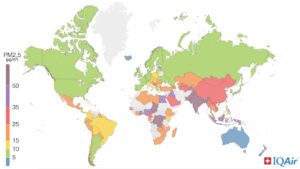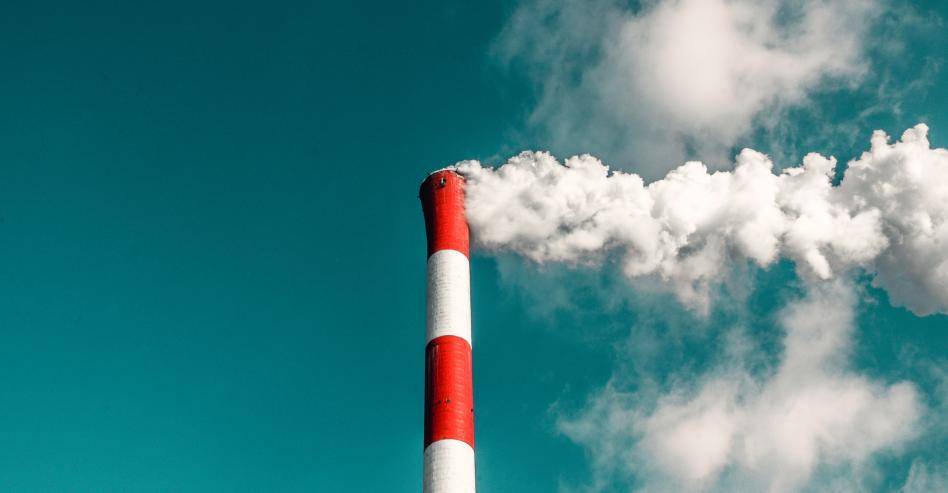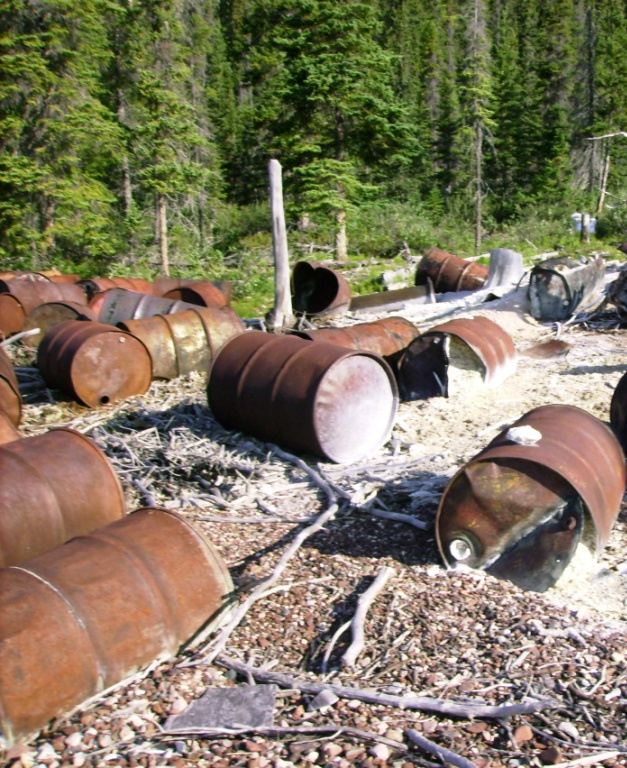Wednesday, October 8, 2025
IQAir has released its 7th annual World Air Quality Report, highlighting alarming trends of the world’s most polluted countries, territories, and regions in 2024. For this year’s report, data from more than 40,000 air quality monitoring stations across 8,954 locations in 138 countries, territories, and regions were analyzed by IQAir’s air quality scientists.
There has been notable progress in expanding air quality monitoring across various countries, regions, and territories over the past 12 months. However, considerable gaps still exist in government-operated regulatory systems in many parts of the world. Low-cost air quality monitors—used by citizen scientists, researchers, community advocates, and local organizations—have proven to be effective tools to address these data gaps. These monitors have proven to enhance the availability of crucial data on air pollution levels worldwide. At the time of this post, the Canadian city with the worst air quality is Montreal, Quebec.
“Air pollution remains a critical threat to both human health and environmental stability, yet vast populations remain unaware of their exposure levels,” said Frank Hammes, Global CEO of IQAir. “Air quality data saves lives. It creates much needed awareness, informs policy decisions, guiding public health interventions, and empowers communities to take action to reduce air pollution and protect future generations.”

Key findings from the 2024 World Air Quality Report:
- Only 17 per ent of global cities meet World Health Organization (WHO) air pollution guideline.
- Seven countries met the WHO annual average PM2.5 guideline of 5 µg/m3: Australia, Bahamas, Barbados, Estonia, Grenada, Iceland, and New Zealand.
- The five most polluted countries in 2024 were:
- Chad (91.8 µg/m3) more than 18 times higher than the WHO PM2.5 annual guideline
- Bangladesh (78.0 µg/m3) more than 15 times higher than the WHO PM2.5 annual guideline
- Pakistan (73.7 µg/m3) more than 14 times higher than the WHO PM2.5 annual guideline
- Democratic Republic of the Congo (58.2 µg/m3) more than 11 times higher than the WHO PM2.5 annual guideline
- India (50.6 µg/m3) more than 10 times higher than the WHO PM2.5 annual guideline
- A total of 126 (91.3%) out of 138 countries and regions exceeded the WHO annual PM2.5 guideline value of 5 µg/m3.
- Byrnihat, India was the most polluted metropolitan area of 2024, with an annual average PM2.5 concentration of 128.2 µg/m3. The region of Central & South Asia was home to the top seven most polluted cities in the world. India was home to six of the nine most polluted global cities.
- The most polluted major U.S. city was Los Angeles, California. Ontario, California was the most polluted city in the United States. Seattle, Washington was the cleanest major city in the U.S.
IQAir’s new Schools4Earth initiative acknowledges the outsized impact that schools have to expand the global air quality monitoring network and seeks to provide over 1 million schools with air quality monitors. IQAir estimates that currently only 21 per ent of the world population has access to hyper-local, real-time air quality information. With a vision of every school worldwide monitoring air quality, IQAir estimates that over 94 per cent of the global population would have access to real-time pollution data—filling critical information gaps and improving public health responses.
“Schools are at the center of communities, making them ideal locations for air quality monitoring. By outfitting schools worldwide with low-cost air quality monitors, over seven billion people would have access to hyper-local, real-time air quality data, creating a worldwide movement for cleaner air,” says Hammes.
The World Air Quality Report underscores how this urgent, data-driven approach is crucial in driving policy changes and collective efforts to reduce pollution for future generations.
“The World Air Quality Report, which compiles measurements of air pollution from around the globe, should be a rallying call for urgent and concerted international efforts to cut pollutant emissions,” states Aidan Farrow, senior air quality scientist with Greenpeace International. “By highlighting the disproportionate risk posed to young people by air pollution, the report reminds us that a failure to act today will be felt by future generations, while frequent references to human activities like coal burning and deforestation are a reminder that air quality, climate change, and the world that will be inherited by our children are inextricably linked.”
IQAir is a Swiss technology company that empowers individuals, organizations, and governments to improve air quality through information, collaboration, and intervention.
Curious about the current air quality of your city? Use IQAir’s search tool here.
Featured image credit: Unsplash/Veteerzy












